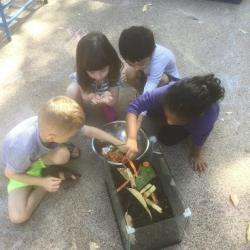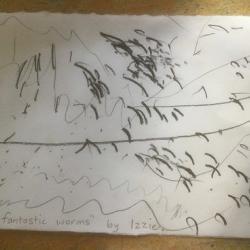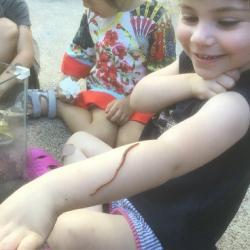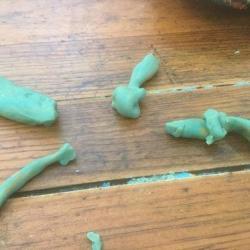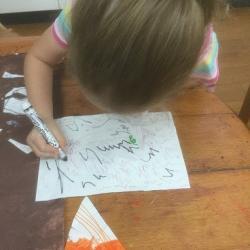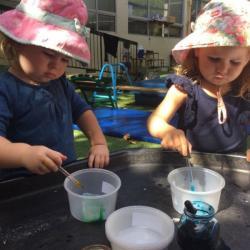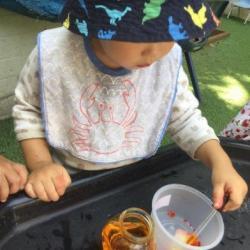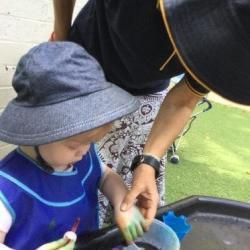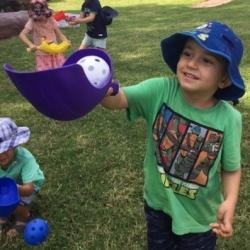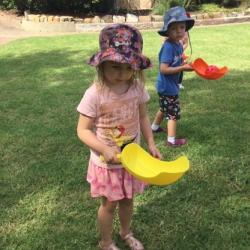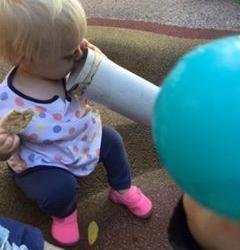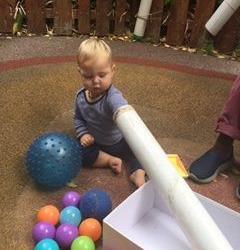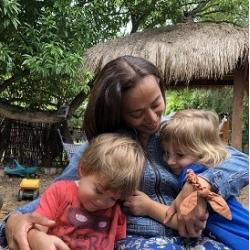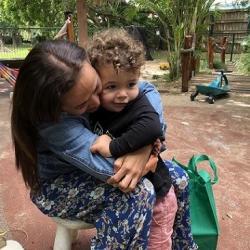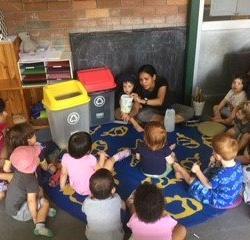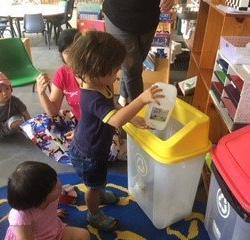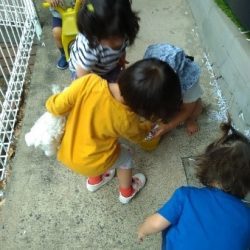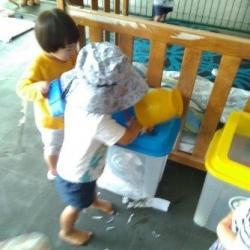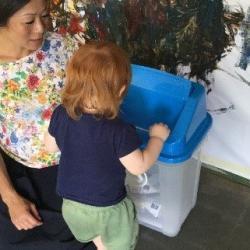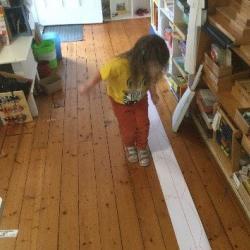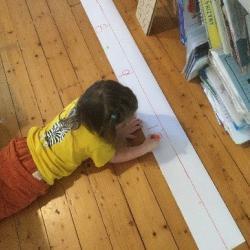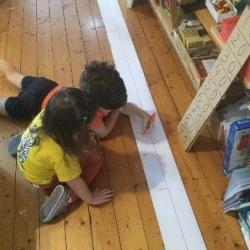Gorton House
The worm farm in Gorton Preschool has always drawn the interest of many children. Every day children eagerly seek to feed the worms our food scraps, and then observe the worms as they gently hold these tiny creatures. We have been engaging in discussions around the importance of worms in keeping our gardens and mother earth healthy, as the worms eat through food scraps and break food and garden scraps into compost. Children’s questions such as “What do worms like to eat?” and “Do worms have a face/head/eyes?” have led us to download some information and images. The children also refer to the posters above the worm farm to discuss specific foods that worms love versus foods they don’t like so much – such as milk, chilli and onions. We created a space with a more visible worm habitat – where the children can observe through glass the changes in the soil and the food scraps as the worms digest these. We will add to the resources in this space in response to how this learning/interest evolves.
We have encouraged the children to express some of their developing understanding of worms through various modes, such as when drawing, where they have drawn entire worm families, or at the dough table where they have rolled out the tiniest of little worms. Our aim when engaging in these experiences with children is to not only to foster their sense of respect for these little creatures, but to also to help them to regularly reflect on how the simple practice of placing food scraps in the worm farm rather than in the bin helps enrich the soil/garden/mother earth and reduces landfill. There are many areas in which we can continue to improve in regards to environmental sustainability, and this is one small way.
Johnson House
Toddlers
Colour Explorations
This week the children were provided with an ‘ice painting’ experience to explore colour. The educators set up the experience as a part of our colour project. The children learned about secondary colours, and helped to create these colours by mixing together the primary colours. The children showed great enthusiasm in this activity, and they were fascinated to see the changing colours of the ice blocks after putting different colours on them.
This experience allowed children to develop their learning dispositions and sensory skills, and they were learning basic scientific concepts about primary and secondary colours.
Preschool
Our educators and our onsite occupational therapist use a variety of fun ways to help enhance the children’s physical development in Johnson House preschool. This week the children practiced their throwing and catching skills using ‘scoop bats’ and balls. Throwing and catching requires upper body strength, hand-eye coordination, motor planning, and body and spatial awareness. Opportunities to master both throwing and catching skills are important as they are a necessary components of many games and activities played by children in their early years. The children enjoyed working together to further their skills and they showed persistence and co-operation whilst engaging in this experience.
Murray House
Babies
Ball play
This week, the young toddlers in Murray House infants’ room have been observed exploring ball play, throwing and trying to catch the balls, kicking, and rolling them on the floor, as well exploring variety of ways to move the balls around the space. There are a variety of gross motor skills that they have been practicing through engagement in ball play, including balancing, overarm throwing, using a whole palm grasp, as well as squatting down and jumping, just to name a few. Loose parts, such as a medium size PVC pipe, was added into the sand pit to complement this interest. The children were soon observed using the pipe to enrich their play, for example, taking turns to put the smaller balls through the pipe, exploring cause and effect, as well negotiating the positioning of the pipe to alter the speed in which the ball come out the other end!
Toddlers
Farewell, Jerle!
This week, we are saying goodbye to our beautiful Jerle. Jerle is one of the casual educators who has been working across The Infants’ Home. She started her professional journey as a student doing her work placement in Murray House about two years ago. She has built strong connections with children in the toddlers’ room during her time with us, and is always greeted with excitement – “Jerle’s here!”, whenever she arrives for her shift. We wish Jerle the best of luck in her next adventure, working with children in the Aboriginal community in Katherine, Northern Territory.
Rigby House
Learning to care for our environment is practiced every day at Rigby House. Our young children are getting very good at sorting rubbish and telling us where it goes, giving left over water to the plants and turning off the taps.
This Sunday 3 March is Clean up Australia Day and Friday, 1 March is Clean up Schools day, which includes early learning centres. These special events empower communities to clean up, fix up and conserve our environment.
So, this week, Rigby House children and educators have been taking a closer look at our outdoor environment, and we have noticed that there are items there which belong in the bin. How did they get there? The children were puzzled by this question, but we worked out that people may drop rubbish on the ground outside of our centre, instead of putting it in the bin, and that the wind then blows it into our yard and around Rigby House, as well as the roads and our homes. We are learning that when we no longer need an item, we have to think about what we do with it, rather than simply throwing it on the ground.
The children have been collecting paper and leaves from our outdoor areas, sorting them with their educators and putting them into the correct bin. We have admired how much nicer our environment looks when we care for it! We’re learning that caring for where we live and spend our time requires constant care and attention and that we are all responsible for looking after it.
Family Day Care
Exploring mathematics in the early years
Sydney Wide Family Day Care educator Edurne has been helping children in her service to explore basic mathematical concepts through a variety of different hands on approaches. The children have been learning how to count by tens and ones and then adding these together. This was woven through the program where they marked the numbers 10 – 100 in sequential order on a number line, used counters as another approach of discovery and constructed a jumping game along the number line. Giving children concrete experiences with a variety of materials with which to explore mathematical concepts allows them to understand that number has meaning.
